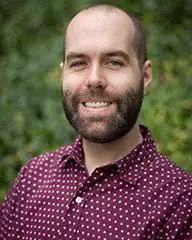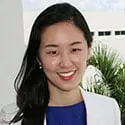Choose between the thesis and non-thesis track and handpick from several elective courses to build the ideal program for your career path.
Receive individualized guidance from highly engaged faculty members who bring decades of field experience into the classroom and beyond the program. As an MA student, you would benefit from individualized attention and dedicated advising from the program director.
Our core curriculum is designed to equip you with the foundational principles of communication that are relevant across various careers and industries. This comprehensive approach will provide you with the necessary skillset, tools, and confidence to excel beyond the classroom and position yourself for various career opportunities.
Build meaningful connections with professionals from diverse backgrounds through our vast network of accomplished students and alumni.
The MA in Communication program highlights the art of communication. We foster communication skills by emphasizing theory, research, and application to examine how people communicate. Upon completing the program, you will:
Tuition is $36,180 ($1,005 per credit hour).
Please see the Tuition and Financial Aid page for more information.
The MA in Communication degree program at Fairfield University is open to students with a bachelor’s degree in any discipline, provided you have a minimum undergraduate GPA of 3.0 and a strong personal statement. No GMAT/GRE required.
Applications are reviewed on a rolling basis and admissions decisions are typically made within one week of receipt from the Graduate Admission office. Applications need to be completed at least 3 weeks before the start of a new term.
It’s easy to apply. Here are the steps:

Christina SanInocencio, the graduate program director of the Communication Department, is a communication scholar specializing in qualitative methods, with a focus on health communication in rare diseases and epilepsy. At Fairfield, she also serves on various committees and boards, including the Rare Epilepsy Network (chair) and Coalition to Cure CHD2 (board member). She founded the LGS Foundation, a non-profit for Lennox-Gastaut Syndrome, and served as its executive director for 13 years. Previously, she was a television and video producer in Long Island and New York City. These experiences drive her interdisciplinary scholarship and versatile pedagogy.

Passionate about teaching communication, Sean focuses on improving daily interactions through courses like Work-Life Intersections and Health Communication. His research on affection exchange and work-life border theories has been featured in media such as the Wall Street Journal, Times of India, and ABC News. Sean was recognized as the 5th most published communication researcher for 2012-2016. He is a Mentoring Award recipient and a Distinguished Research Teaching Fellow.

Michael's diverse career spans an Army corpsman turned Physician Assistant-Certified, with an MA in English and a Ph.D. in Communication, focused on health communication. For over 40 years, he has balanced patient care, research, and teaching interdisciplinary health communication courses. He designed a unique End-of-Life Communication course, stressing practical experience at CT Hospice. With a broad research agenda, he authored health communication books and articles, contributing uniquely to his field.

Dr. Bora Yook is an Assistant Professor of Communication at the Department of Comminucation. She has earned her Ph.D. in Communication at the University of Miami and a master's degree in Public Relations at Boston University. She serves as a conference director at the International Public Relations Research Conference (IPRRC) and has served as a committee member of the PR division at the Association for Education in Journalism and Mass Communications (AEJMC). Dr. Yook formerly worked as an account executive at AdAsia, a multicultural marketing communication agency in New York City.
We offer the flexibility to customize your curriculum to meet your unique professional goals and expand your career options. Leverage an extensive alumni network and unrivaled career resources to support your next career move.
We offer several courses relevant to health communication, as indicated in bold below. Coursework related to the health communication focus equips students with the tools they need in the workforce to research and apply messaging that promotes health equity, encourages behavior change, combats health disparities, and improves patient-centered outcomes in various communication contexts.
Credits – 3
Credits – 3
Credits – 3
Gender is central to how we organize our lives. The way we communicate about gender can enhance or undermine all of our relationships. The purpose of this seminar is to augment, or even change, our understanding of the relationship between gender, communication, and organizations. Specifically, the goal for this course is to use a combination of scholarly essays and journal articles as well as popular news media to examine critically topics such as femininity, masculinity, and sexuality within the following contexts: education, sports, politics/government, leadership, the military, and other professions and organizations. Undergraduate equivalent: COMM 3323. Previously CO 0497A.
Credits – 3
This is an interdisciplinary, intercultural course that applies a bifocal (communication and healthcare) lens to the study of palliative care. The course is intended to explore this relatively new area of health care delivery (quality of life vs. cure) and the critical role communication plays in accomplishing the interdependent goals of providers, patients, and families in the United States and Italy. Since palliative care should be for all chronically- and/or terminally-ill patients across the life cycle, students will critically examine, from both health care and communication perspectives, the differences in palliative care delivery in the United States and Italy. Undergraduate equivalent: COMM 4328. Previously CO 0497S, COMM 5326.
Credits – 3
This course provides a broad introduction to the structure, conventions, and effects of visual communication with a theoretical emphasis on media ecology. The first half is devoted to understanding formal properties including examining the basics of vision, techniques for visual persuasion, and the language of cinematography and editing. The second half surveys more controversial issues like digital manipulation and violence and sex in media. Course material and assignments will be drawn from media domains including advertising, photo/video journalism, and video games. Students will read both theoretical contributions to and empirical investigations of the field. Undergraduate equivalent: COMM 3337. Previously CO 0497H.
Visionary by nature.
Jesuit Catholic by origin.
The driving force of Fairfield is our mission — to impact the world. It prompts us to ask important questions, to embrace our social responsibilities, and to lead by example. And it’s what has made us a premier institution in the Northeast. Let the mission be part of your journey.